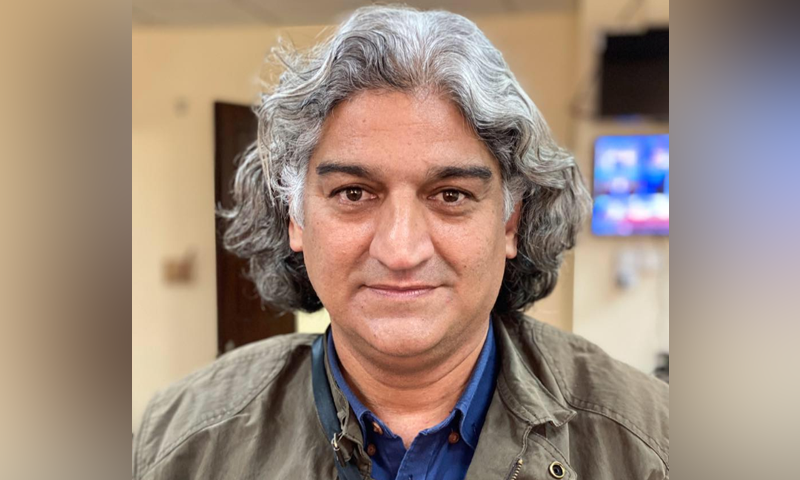
The Islamabad High Court (IHC) has noted that it’s the duty of the state to remove the perception about enforced disappearance of a journalist, stressing that no society “can progress by suppressing freedom of expression and free speech” by ignoring impunity for crimes against the journalists.
“Abduction or enforced disappearance of any citizen is one of the gravest offences and thus cannot be tolerated in a society that professes to be committed to upholding the rule of law,” says a seven-page judgment authored by Chief Justice Athar Minallah in senior journalist Matiullah Jan case.
“But even a perception of involvement of the state and its functionaries in crimes committed against a journalist extends the infringement to the fundamental rights of the public at large guaranteed under Articles 19 and 19-A of the Constitution,” the judgment adds.
The judgment further says that any such perception, though it may ultimately be established to be wrong, obviously sends a message to others that the target or purpose of the crime was to suppress free speech and threaten others from following suit. It adds that this fear or threat definitely has devastating consequences for the society.
This fear or threat definitely has devastating consequences for society, its citizens and the democratic polity.
“Nothing impedes freedom of expression and free speech more than the fear or perception that the state and its functionaries, instead of protecting the fundamental rights guaranteed under Articles 19 and 19-A, are involved or complacent in the impunity for crimes against its citizens, particularly those who are engaged in the profession of journalism,” says the judgment. “Removing such a perception becomes a duty of the state.”
The court notes that many journalists have been killed in the line of duty in the past decade and were targeted for exposing the truth. It also noted that besides being a constitutionally guaranteed right, freedom of expression reaffirms other fundamental rights.
“No society can develop, prosper and progress by suppressing freedom of expression and free speech by ignoring impunity for crimes against the journalists. It is an essential attribute of human beings to be able to speak freely, communicate and convey a message without fear of being harmed, so long as it does not infringe upon the rights of others or the content does not fall within the ambit of the expression “hate speech”.
The court says that free speech is not confined to speaking but extends to listening to and respecting opinions of others. Suppression of free speech leads to regressive societies, encouraging extremism and eroding rule of law, it adds. “It inevitably results in chaos and anarchy.”
A free press, the judgment says, has the role of a watchdog and impeding its ability to disseminate information and hold the state and its institutions accountable definitely denies to the people the enjoyment of their rights.
“Our national security can only be strengthened and enhanced by keeping people informed and encouraging them to exercise the right to express freely, subject to reasonable restrictions. Truth, and knowing the truth is a panacea for poverty, erosion of rule of law, regression and chaos,” it reads. “Free speech is crucial for bringing about change, progress and prosperity.”
The court further notes that the case in hand is, therefore, a challenge for the federal government and the public office-holders of the Islamabad Capital Territory, stressing that they have to demonstrably show that there is a political will to put an end to impunity for crimes against citizens and to protect journalists from harm for exercising the right of free speech.
“It is their duty to demonstrate that, in the State of Pakistan, there is no tolerance for crimes which may be perceived as a threat to freedom of expression. Registration of criminal cases and giving public statements is not enough. The status of rule of law ought to be such that no one has the courage to commit a crime with such impunity as was demonstrated in the case in hand,” reads the ruling.
“This is indeed a test case for the federal government and the public functionaries of the Islamabad Capital Territory to dispel the impression that neither the state nor its agents were involved or complacent in a grave crime.”
The judgment says that the high court has the confidence in the state and the abilities of its functionaries to meet the challenges highlighted by it in its order. “This court has no doubt that the federal government has the political will to ensure that those who had attempted to terrorize the journalists as a class and the public at large are not only apprehended but made an example, so that no one would dare to commit a crime with such impunity.”
The court has disposed of the case with the expectation that investigations in this case will be conducted in the most transparent and diligent manner and that the perpetrators will be dealt with in a manner so that no journalist in the country fears to be harmed for exposing the truth. “No one is above the law and every citizen, including the state, is subservient to the rule of law and the supremacy of the Constitution,” the judgment says.
1731570357-0/elon-musk-(1)1731570357-0-405x300.webp)
-(1)1717678110-0/Kendrick-(1)-(1)1717678110-0-165x106.webp)






1732428532-0/BeFunk_§_]__-(43)1732428532-0.jpg)








COMMENTS
Comments are moderated and generally will be posted if they are on-topic and not abusive.
For more information, please see our Comments FAQ